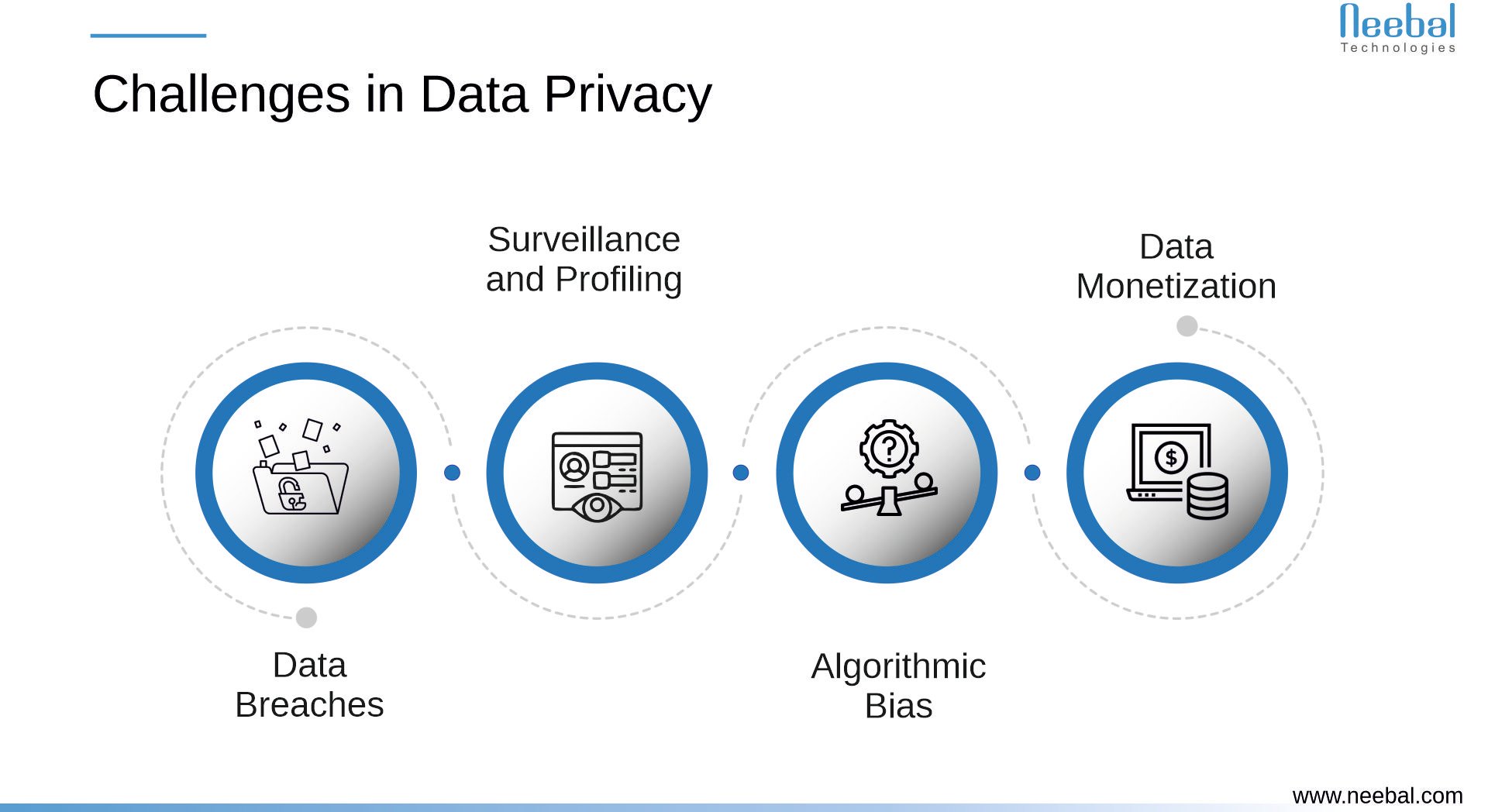In today's digital world, where everything is interconnected, artificial intelligence (AI) has emerged as a powerful force driving technological advancements and reshaping various aspects of our lives. From healthcare to finance, AI has the potential to transform industries, but this innovation comes at the price of our personal data.
This article explores the complex relationship between AI and data privacy between two diverse but significant global players, India and the United States of America (USA).
Understanding AI and Data Privacy
AI, or machine learning, heavily depends on data to function effectively. These systems analyze vast datasets to recognize patterns and make predictions or decisions. For example, your smartphone uses AI to recognize your face or voice, while online retailers use AI to recommend products based on your browsing and purchase history. To make these functionalities accurate, AI algorithms need access to extensive data, often including personal information. This poses a significant challenge for data privacy.
Challenges in Data Privacy

Data Breaches
As AI systems accumulate and analyze large volumes of data, they become potential targets for cyberattacks. Data breaches not only compromise individual privacy but can also lead to identity theft and fraud.
Surveillance and Profiling
Facial recognition technology, for instance, can be used to track individuals without their consent, raising concerns about privacy invasion.
Algorithmic Bias
AI systems can inherit biases from their training data, resulting in unfair or discriminatory outcomes. When sensitive personal attributes are included in training data, the potential for bias increases, which can have consequences for marginalized communities.
Data Monetization
Companies often monetize user data by selling it to third parties. While this practice may be legal, it can erode the control individuals have over their personal information.
Data Privacy Landscape in India
India, with its rapidly growing tech industry and a vast digital user base, faces significant challenges concerning data privacy. The country introduced the Personal Data Protection Bill (PDPB) to establish a robust framework for data protection. This legislation, which is similar to the European Union's General Data Protection Regulation (GDPR), emphasizes user consent, data localization, and the rights of individuals over their data.
With AI at the forefront of India's digital transformation, there is a pressing need for clear regulations to ensure responsible AI development while protecting user data from misuse.
Data Privacy Landscape in the USA
Unlike India, the USA does not have a comprehensive national data privacy law. Instead, what it has is a clutter of hundreds of laws that are enacted at the federal as well as state levels to safeguard the personal data of citizens.
For example, California, with the California Consumer Privacy Act (CCPA), has introduced stringent data protection laws. These laws grant users the right to know what personal information is collected and the right to withdraw from the sale of their data.
However, the absence of a unified federal law creates challenges, especially as AI technologies continue to evolve. The lack of standardized regulations across states can create confusion for businesses operating nationwide and raise concerns about the consistency of data protection standards.
Scope and Opportunities
Both India and the USA share common challenges in the realm of AI and data privacy. The rapid pace of technological advancement outruns the development of regular frameworks. This lag poses a significant challenge as AI applications become more prevalent in areas such as healthcare, finance, and law enforcement.
Furthermore, there are ethical concerns regarding the use of AI in surveillance, predictive policing, and decision-making processes. These concerns highlight the importance of creating responsible AI guidelines that prioritize fairness, transparency, and accountability.
Despite these challenges, there are ample opportunities for collaboration and knowledge exchange between India and the USA. Both countries can learn from each other's experiences and work together to establish international standards for AI development and data privacy.
The Future of AI and Data Privacy
As AI technology continues to advance, so must our strategies for protecting data privacy. Emerging technologies such as homomorphic encryption and federated learning are promising tools that enable data analysis without exposing sensitive information. Additionally, the adoption of privacy-preserving AI techniques, such as differential privacy, is gaining traction.
The development of AI models that are more robust and resistant to bias is also a top priority. Research in this area focuses on creating fair and ethical AI systems that can be trusted to make unbiased decisions, reducing the risk of discrimination.
Moreover, the role of governments in creating and enforcing robust data protection regulations cannot be overemphasized. These regulations need to keep pace with technological advancements to safeguard individual privacy.
Conclusion
AI's potential to transform our lives for the better is undeniable, but it must be harnessed responsibly to protect data privacy. Striking a balance between innovation and privacy is a complex challenge, but it is one that requires the combined efforts of technology companies, governments, and individuals.
Both India and the USA face common challenges, such as data breaches, cross-border data flow, and enforcement, but their approaches differ due to their unique societal and economic landscapes.
As the future of AI and data privacy unfolds in both nations, it's crucial for them to adapt and refine their regulatory frameworks continually. This flexibility is necessary to ensure that the benefits of AI do not come at the cost of individual privacy. Finding the right balance between innovation and data protection is an ongoing challenge that requires global cooperation.
Ultimately, it is a challenge worth pursuing, as it has the potential to shape a future where AI not only powers innovation but also respects and safeguards the personal privacy and rights of every individual.
